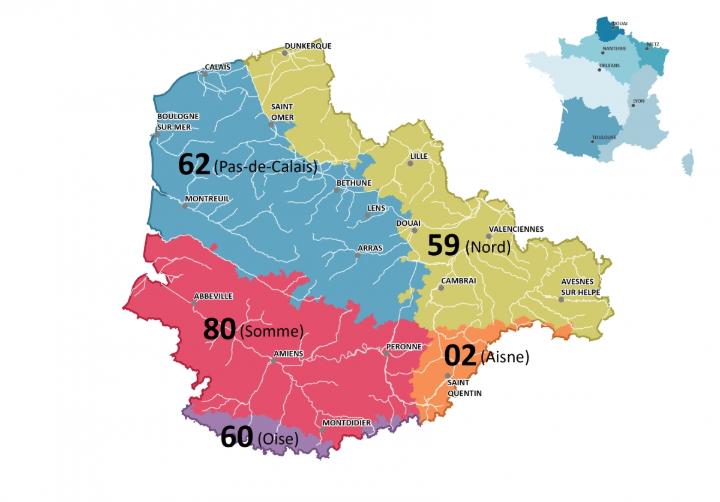Let Corinne Bétrancourt, expert on flooding, introduce you to The Artois-Picardie Water Agency (Agence de l’Eau Artois-Picardie), also known as AEAP. Located in Northwest France, AEAP operates as a public organisation under the ministry responsible for ecology and sustainable development. It is one of the six water agencies in France created under the Water Act of 1964, and an associated partner of the ResiRiver project.
AEAP’s main activities
As a Water Agency, AEAP contributes to the implementation of national policies relating to water, aquatic environments, marine and terrestrial biodiversity. This year the AEAP will launch its 12th intervention program, which will run until 2030. During this period, they will focus on five key issues:
1. Preserving and restoring the ecological functionality of aquatic environments and wetlands.
2. Ensuring the quality and quantity of drinking water.
3. Relying on the natural functioning of environments to prevent and mitigate the negative effects of floods.
4. Protecting coastal and marine environments.
5. Implementing coherent public policies in the water sector.
AEAP also collect fees based on the ‘polluter-’ and ‘user pays’ principles. They then redistribute these fees in the form of financial aid, to support the restoration of water quality and adaptation to climate change.
The role of Nature-based Solutions (NbS)
NbS are at the heart of the Water Agency's intervention program. As a party that works with flood management, they oversee flood prevention action programs implemented by watershed syndicates such as SYMSAGEL. AEAP’s funding for operations is primarily directed toward NbS (e.g. restoring natural floodplain areas, protecting wetlands, and de-impermeabilization and renaturation).
Last year, AEAP launched a Call for Expressions of Interest (CEI) on NbS to address water-related challenges. This CEI aims to promote NbS by financing studies for the design of ambitious projects (100% funding), addressing water management challenges whilst putting biodiversity and citizen participation at the core of concerns. It goes to show how crucial NbS are in achieving AEAP’s goals.
An essential connection to ResiRiver
Not only can the AEAP-funded NbS projects provide valuable insights and lessons learned to ResiRiver partners, the agency itself will also gain useful feedback in return.
Their primary goal is to gather feedback on the implementation of NbS, including the challenges faced, while ensuring compliance with the IUCN standard. Both from a technical, and inclusive governance perspective. These insights will enable AEAP to adjust their interventions if necessary.
